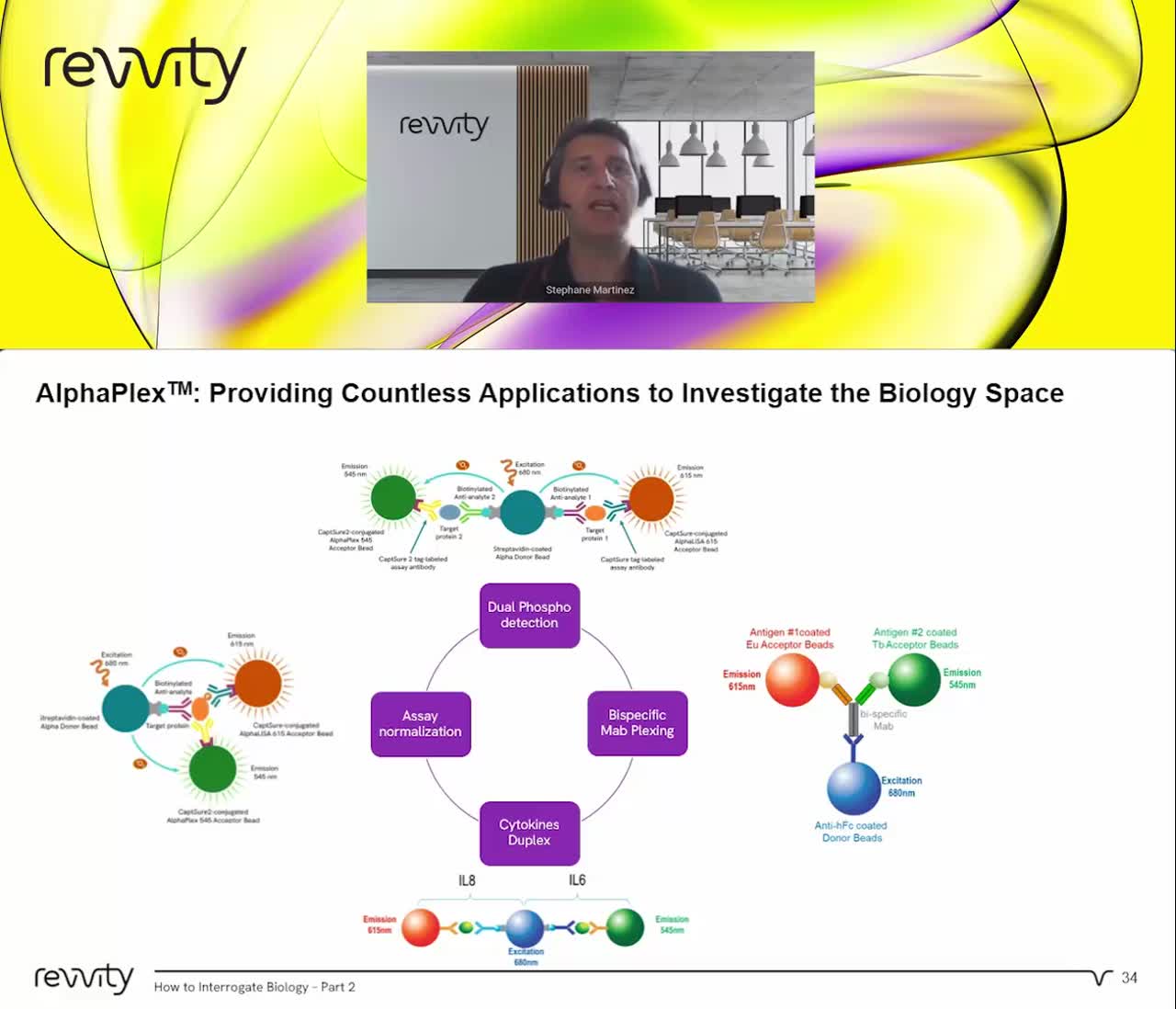
Immunoassays are powerful analytical techniques for quantifying analytes in biological samples, providing critical information for diagnostics, research, and quality control. While single-target, single-readout (monoplex) immunoassays have traditionally been the go-to method for protein and biomolecule quantification in drug discovery research, the introduction of multiplexing has expanded the scope of scientific enquiry for many researchers.
Monoplex assays, such as AlphaLISA™ and HTRF™, are still relied upon for their simplicity and reliability, but multiplexing has emerged as a complementary technique, offering a wider array of research possibilities. By allowing multiple readouts from a single well, multiplexing not only optimizes experimental efficiency but also provides opportunities to gain greater insights into complex biological systems.
Multiplex assays can be used for the investigation of various aspects of biology, including compound mechanism of action studies, bispecific antibody analysis, and cytokine modulation studies. Examples of multiplex applications include:
- Mechanism of action studies: Multiplex assays can be used to facilitate the study of compound mechanisms of action along signaling pathways. For instance, a dual phospho detection assay can be used to simultaneous detect and quantify phosphorylated forms of a protein at different phosphorylation sites. Such information can prove useful for determining the function of a protein or gaining insights into downstream signaling pathways.
- Bispecific antibody analysis: Bispecific antibodies, with their dual binding properties, may enable superior efficacies compared to their monospecific counterparts. However, it is important to appropriately analyze the binding properties of both domains. Multiplex assays offer a solution by enabling the simultaneous assessment of the affinities of both binding domains of a bispecific antibody.
- Cytokine modulation studies: In the field of cytokines, multiplex assays can be used to simultaneously measure multiple cytokines within the same sample. This capability is particularly valuable in cytokine modulation studies, where the goal is to identify compounds that selectively inhibit the secretion of a particular cytokine without affecting the secretion of others.
Measuring multiple targets from the same well is particularly beneficial when working with limited or expensive sample materials, such as serum, plasma, or cerebrospinal fluid (CSF). This not only conserves precious samples but also reduces the need for additional reagents and person-hours associated with running individual assays, thereby saving valuable time and costs.
Multiplex assays are also valuable for improving data quality by enabling additional parameters for normalization. By measuring multiple targets within the same sample, researchers can account for variations in sample handling, processing, and experimental conditions. For instance, multiplex assays enable researchers to normalize phosphorylation data relative to total protein content in the sample, reducing the risk of false positives or negatives, or incorrect classification of a compound’s mechanism of action.
To find out more about multiplex immunoassays, watch our video below.

Technologies to advance multiplex assays
Technologies such as AlphaPlex™ and LEGENDplex™ represent some of the innovative approaches for advancing multiplex assays.
AlphaPlex allows researchers to transition from established AlphaLISA methods to multiplexed detection of a wide array of biomarkers. By utilizing multiple AlphaPlex acceptor beads tailored to various analytes, each with distinct fluorescent properties, these assays can be developed to monitor the presence of multiple targets in the same well.
Another innovative technology is LEGENDplex, which allows researchers to quantify cytokines using standard flow cytometers. By utilizing beads pre-coated with antibodies for their intended target, cytokine concentrations can be reliably quantified.
For research use only. Not for use in diagnostic procedures.

































